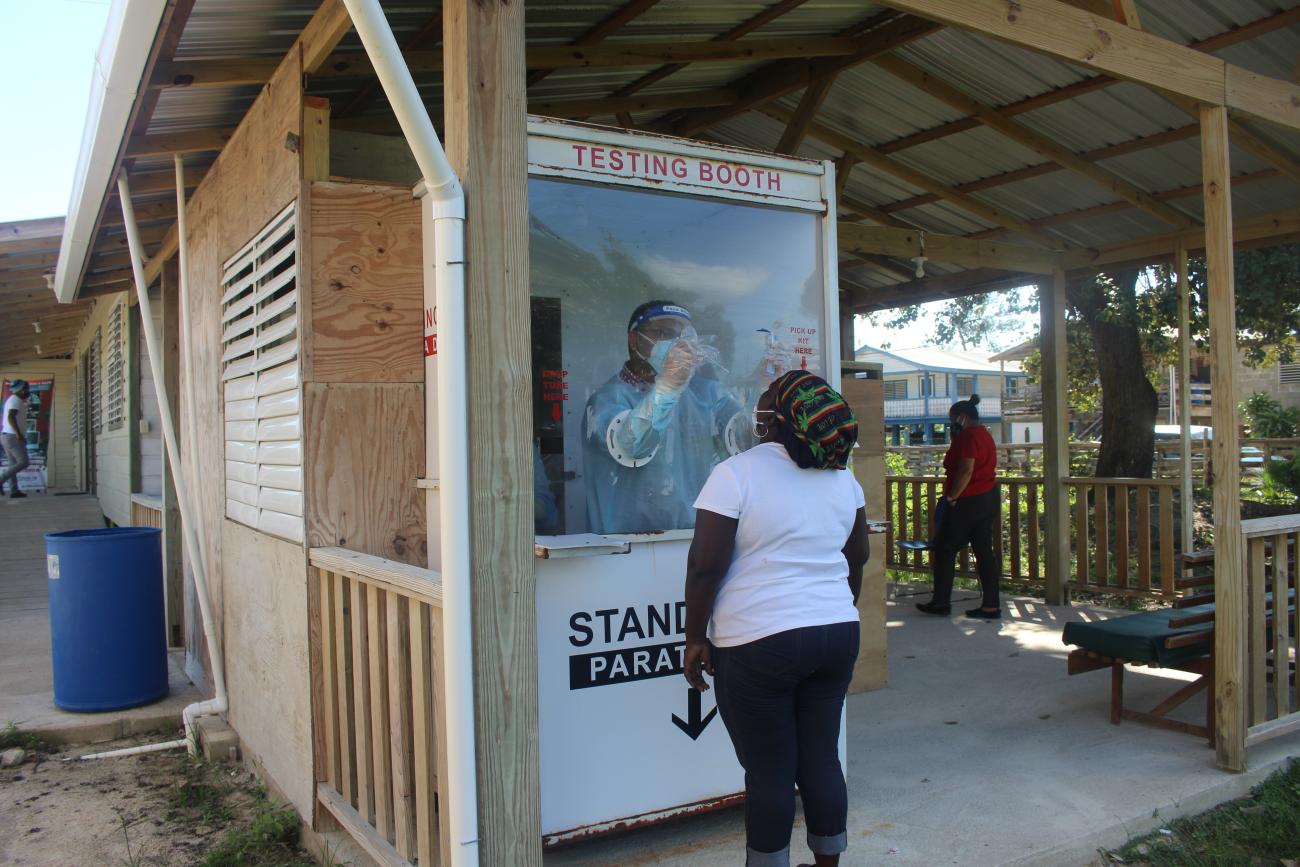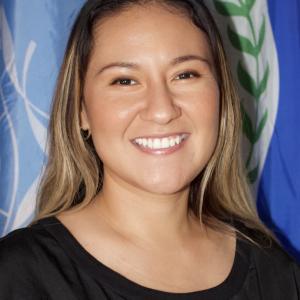Dr. Rayford Rancharan, Medical Chief of Staff, shuffles through paperwork in the desk he has used for the last ten years. He and his team of health care providers at the Independence Polyclinic are used to stretching the last bit of supplies they have and providing the most services that they can. But since the COVID-19 pandemic began, the number of patients has soared along with the working hours, and they are now managing a separate unit for COVID treatment.
“We work 40-hour weeks on average, but with the COVID-19 pandemic, our entire team gave 50 hours a week to keep providing services to all of our patients,” said Rancharan. But he was happy to dedicate more hours to the polyclinic. “As a doctor, I am most happy when serving, especially in the rural community, with or without all of the necessary supplies.”
The Polyclinic caters for the needs of around 25,000, including people forced to flee violence and persecution in other Central American countries and have sought protection in the tiny English-speaking nation. Many of them receive treatment there. “Regardless of the documents you have or status, healthcare is for all,” said Dr. Rancharan highlighting the importance of treating and assisting all who walk into to clinic. “There is no discrimination when it comes to patients accessing health care services.”
Belize hosts over 4,000 refugees and asylum seekers, mainly fleeing gang violence and persecution in Central America. Many are welcomed by communities like Independence village, located in the southernmost district of Toledo, an area that has seen a recent uptick in COVID-19 cases.
In support of the response to COVID, which claimed the life of a colleague and friend of these medical professionals, UNHCR, the UN Refugee Agency, donated medical and personal protective equipment to the Independence Polyclinic, including 300 face shields, 5,000 masks, 1,700 disposable gowns, 200 pairs of gloves, and five patient monitors.
“For everyone to be safe from the virus, the most vulnerable must be protected,” said Yolanda Zapata, UNHCR’s head of office in the country, “These donations support the government of Belize to continue fostering inclusion and solidarity even in adversity.”
But the Independence Polyclinic team does not only receive increased numbers of patients; through mobile clinics they go beyond their village’s limits to reach smaller, nearby villages and communities whose residents may not be able to afford transportation to Independence. “The donations saved many lives. This area of Belize suffers high rates of poverty and unemployment. Public healthcare is their only means of health and survival,” said Dr. Rancharan.
The polyclinic and its COVID testing centre are following strict safety guidelines such as the use of masks and social distancing.
The health care team is efficient as they swab their patients for COVID testing, including Kerin Jones*, a Belizean national nervously awaiting her results. “The Independence Polyclinic has a big impact on the community,” she said. “They have a Facebook page where they keep us updated on the services that are being provided. They go out to the different villages, and that’s a good thing. You don’t have to go to them, they can come to you”.
The support provided by UNHCR seeks to benefit both Belizeans and refugees, in line with spirit of the Global Compact on Refugees and its application in Central America, the MIRPS, the Comprehensive Regional Protection and Solutions Framework. Through the MIRPS, governments like Belize’s seek to provide a holistic response to the needs of forcibly displaced across Central America and Mexico.
These donations were made under the wider UN response by a joint effort between PAHO, ILO, UNFPA and UNHCR in Belize through the Multi-Partner Trust Fund. Through the Fund, the UN System supports national efforts to stop transmission of COVID-19 in rural areas and reduce the impact of the virus on human lives, in line with the sustainable development goals.



